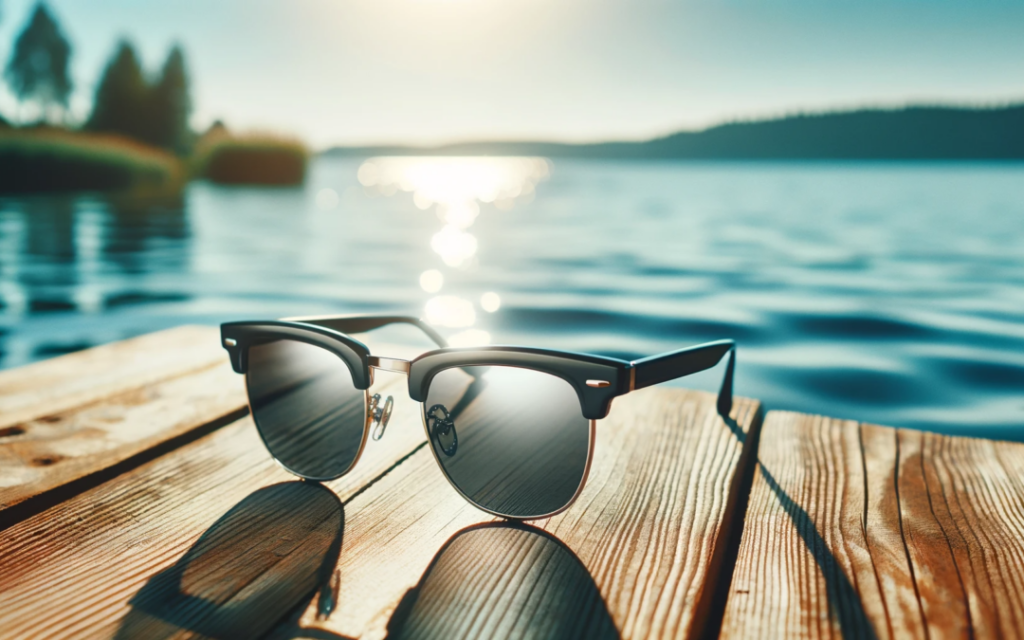Sunglasses are far more than just stylish and comfortable. There is no secret to this fact at this point.
If you want to protect your eyes from the harmful ultraviolet rays, then a good pair of sunglasses is an essential part of your health care. If you expose your eyes to harmful UV rays over a prolonged period of time, you may develop cataracts, glaucoma, and age-related macular degeneration.
The word “polarized” is often seen next to the words “100% UV protection” on a pair of sunglasses. What does that mean? Will polarized lenses provide you with the same level of protection as conventional lenses?
Our discussion today will focus on the science of polarized lenses, including what they do and do not do, and if they can be considered cost-effective.
How do polarized and non-polarized lenses differ?
It is well known that light travels in waves, which means it vibrates in many directions. However, when light bounces off horizontal surfaces, such as snow, water or the roof of your car, it only vibrates in one direction, horizontally. This is the phenomenon of polarization.
We refer to this concentrated light as glare because it is only vibrating in one direction.
In terms of glare control, polarized lenses differ from non-polarized lenses.
A NON-POLARIZED LENS
Sunglasses that are not polarized are designed to reduce the intensity of any light. If your sunglasses are equipped with UV protection, they should be made of a special dye or pigment that prevents the transmission of ultraviolet rays to the eyes.
Despite this, glare will still affect your vision more intensely than other light due to the way this technology works for sunlight of all types.
LENSES WITH POLARIZATION
Unlike conventional lenses, polarized lenses are treated with a chemical that filters out light; however, the chemical is applied vertically, so that only vertical light passes through.
If you hold a popsicle stick vertically between the slats of a picket fence, it can easily slide between them. However, if you hold it sideways or horizontally, the popsicle stick cannot slide between them.
As such, polarized lenses prevent horizontal light, such as glare, from passing through them.
POLARIZED LENSES – THE BENEFITS
REDUCTION OF GLARE
As a best-case scenario, glare serves to distract. As a worst-case scenario, it can cause serious injury.
Several studies have shown that intersection collisions, in particular, happen more frequently when the sun is most favourable for generating glare.
It is possible to prevent accidents and injuries by reducing glare, which can allow you to stay more aware of your surroundings.
ENHANCED CLEARNESS
Athletes and outdoor hobbyists often wear polarized sunglasses in order to be able to see with a higher level of precision, even if glare is not a safety concern.
Sunglasses with polarization may also exhibit a more accurate portrayal of colors than sunglasses without polarization.
PROTECTION AGAINST FATIGUE
It has been shown that the glare from the sun can lead to fatigue. It is caused when your eyes are overworked, causing them to feel tired, sore, or even unable to stay open due to glare. Overworked eyes are known as eye strain, and they can become tired, sore, or unable to function properly.
WHICH ARE THE BEST TIMES TO USE POLARIZED LENSES?
If your car uses LCD displays for basic controls, you should avoid wearing sunglasses with polarized lenses while driving. Devices that use LCD displays emitted polarized light, so polarized lenses may not be an ideal choice in every situation.
The following applications are excellent candidates for polarized lenses:
-
Players of golf
-
The skiers
-
The fishermen
-
Riders of motorcycles
-
The beachgoers
Do polarized lenses provide greater visual benefits?
A polarized lens will not provide more protection against ultraviolet harm to your eyes than a standard 100% UV lens, but they can provide a clearer, more accurate view and alleviate some eye strain.
You may find that wearing polarized sunglasses is a more comfortable option if you find yourself squinting a lot, even while wearing sunglasses.
Wear sunglasses that provide 100% UV protection whenever you are outside in the sun, no matter what you do.
















